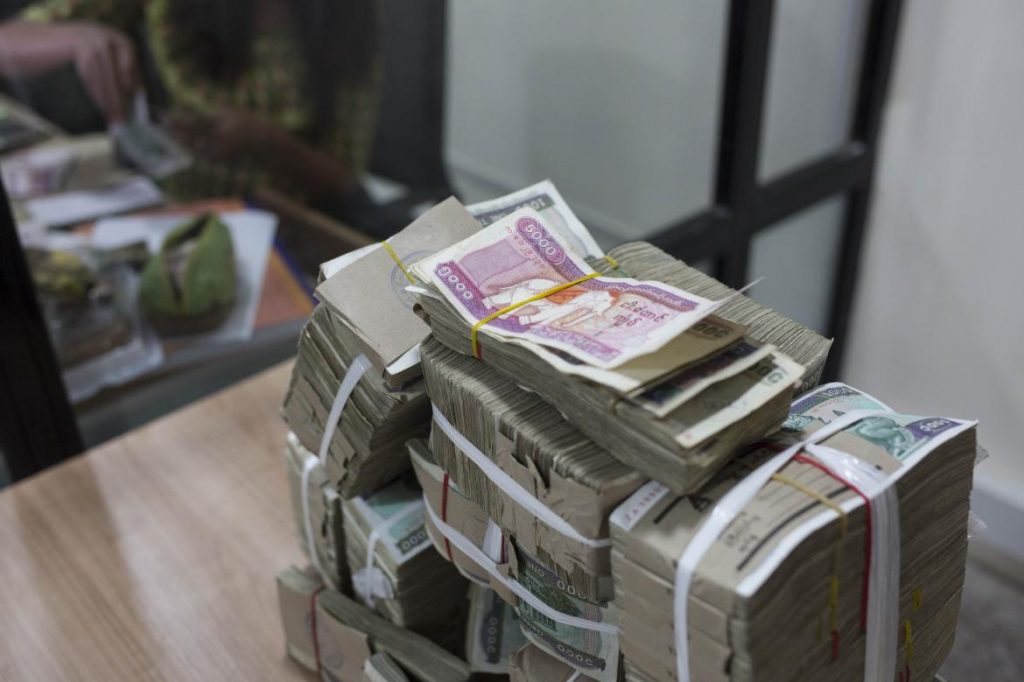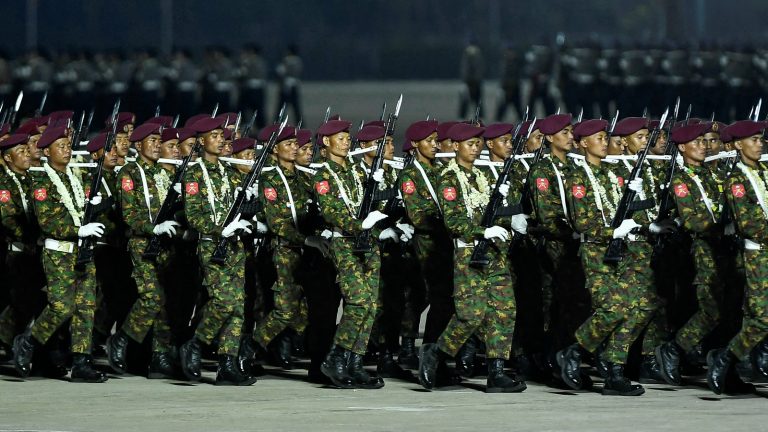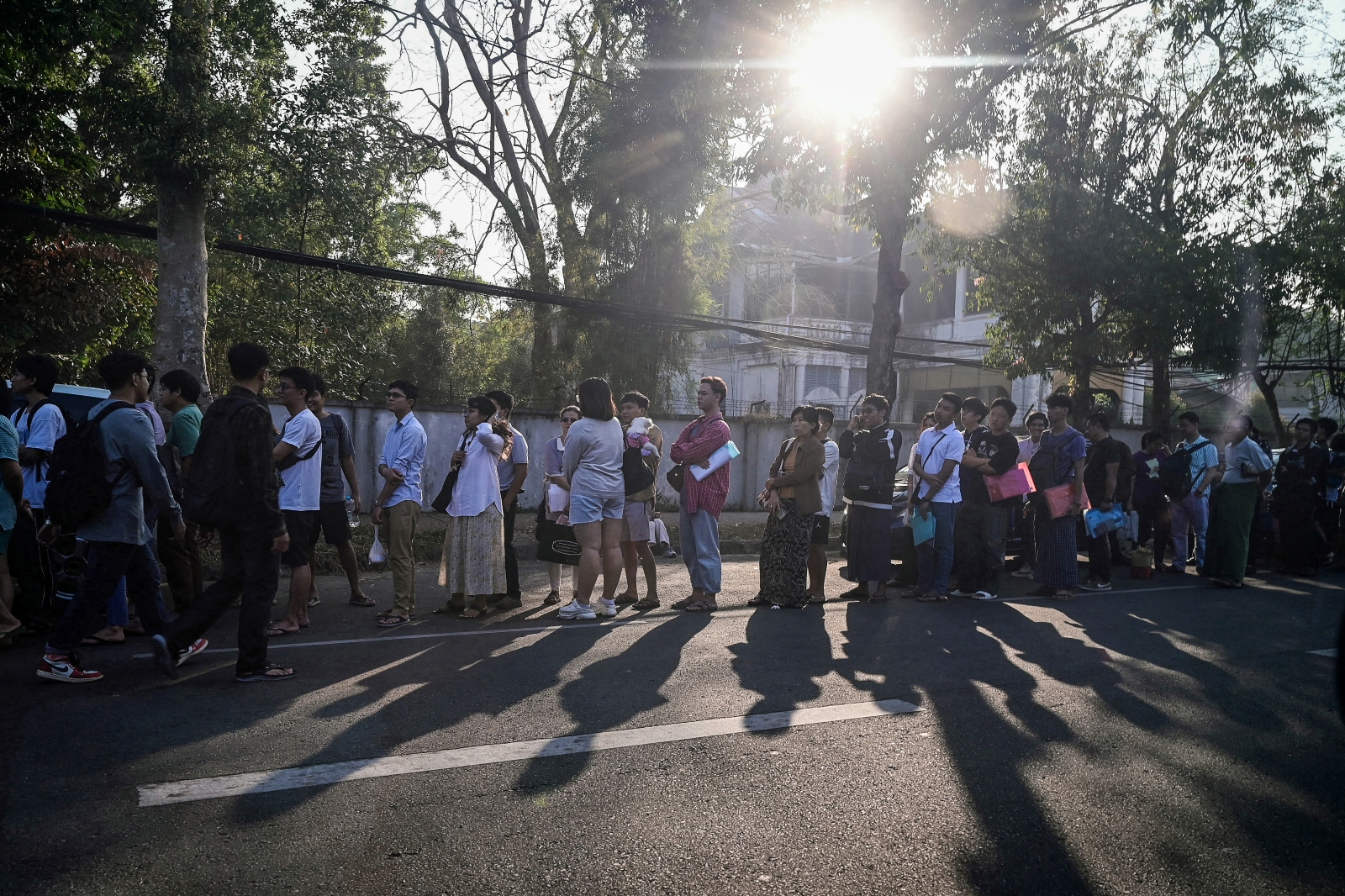Members of parliament set another daunting challenge for the government this month when they voted in favour of a crackdown against the scourge of corruption.
By SITHU AUNG MYINT | FRONTIER
MEMBERS OF the Pyithu Hluttaw voted overwhelmingly in favour of a government crackdown on corruption on August 10 after two days of discussion.
An unusually high number of 32 MPs, including some from the unelected military bloc, had registered to participate in the discussion and all supported the proposal for the National League for Democracy government to take effective action against corruption.
The proposal was accepted for discussion after being tabled earlier in the month by U Than Win, who represents Yangon’s North Okkalapa Township for the NLD.
Than Win was quoted as saying it was a “shame” that Myanmar ranked 147th out of 168 countries and territories on Transparency International’s index of perceived levels of public service corruption for 2015.
Support more independent journalism like this. Sign up to be a Frontier member.
During the parliamentary discussion, U Mya Win, the chairman of the Anti-Corruption Commission, spoke of its efforts to combat graft and asked that the proposal be recorded. However, when the proposal was put to the vote in the lower house, it was supported without objection and approved.
Corruption and graft are entrenched in Myanmar. This week I would like to discuss whether the NLD government will be able to combat corruption.
The proposal calls on the Union Government to take effective action against corruption and reduce it significantly throughout the country. During the debate, elected MPs and those from the military bloc discussed the proposal from various perspectives in which a common thread was their knowledge or experience of corruption.
Over the decades of military government to the quasi-civilian administration of President U Thein Sein, corruption has grown and spread from the highest level of government to the lowest ranks of the civil service. Corruption has become so common in every level of society that it is not regarded as wrongdoing.
Corruption in government falls into three classes: at the top levels of authority, the middle level of authority and at the lower level of the public service.
Corruption at the top level of government is evident in the enormous wealth of those who have profited from it, including their children and other relatives. It is obvious that the wealth accumulated by many at the top levels of government, past and present, was acquired through illegitimate means. The property and other assets they own could not possibly have been acquired with funds that were lawfully gained.
The corruption of middle level officials is focused mainly on taking advantage of loopholes or weaknesses in laws and regulations. The amount of ill-gotten wealth they can accumulate varies according to their public service rank and their department.
One of the reasons for corruption among the lowest-level public servants is government salaries that are inadequate to cover the cost of supporting a family. Another reason for corruption among low-level civil servants is that they are not allotted enough money to carry out their jobs, making it necessary for them to seek supplementary “contributions”.
The NLD government will need a systematic, carefully-planned strategy to tackle corruption. Sensitive decisions that could arouse controversy will be necessary. One involves where to begin. Should corruption under the NLD government be tackled first or should a crackdown begin with cases involving previous governments? Could they be addressed simultaneously?
Another decision that will have to be made is whether big cases should be tackled first. A significant issue will be how to combat corruption in businesses owned and operated by the Tatmadaw and those under the military-controlled ministries of Defence, Home Affairs and Border Affairs. Some cases of corruption are complicated and will need to be resolved together with other problems.
Tackling corruption is a huge task. House Speaker U Win Myint has said that some laws will need amending for an anti-corruption campaign to be effective.
They include the law for impeaching top government officials that requires a formal complaint for a case to be launched and a considerable amount of evidence for it to succeed.
A weakness in corruption laws is that they provide for both those who offer and accept bribes to be punished. If both parties decline to speak to investigators, it’s difficult to prove that corruption occurred. The legal entrapment of corrupt officials is not possible in Myanmar, as it is in some other countries.
Combating corruption will require all related laws to be reviewed, and amended if necessary. It will also be imperative to increase the salaries of public servants so that they can cover living costs and the expenses associated with carrying out their work.
Legal reform and a decent living wage for public servants are among the changes that must be introduced in Myanmar if it is to escape the notoriety of being one of the most corrupt countries in the world.







